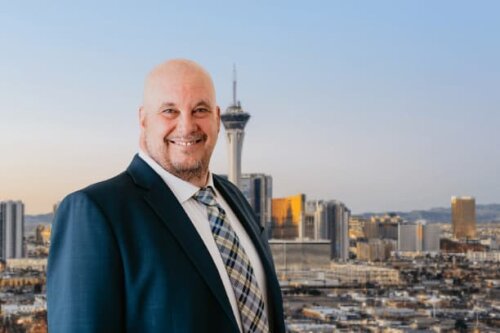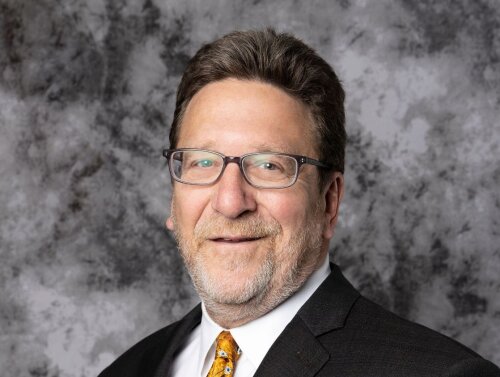Best Elder Abuse Law Lawyers in Las Vegas
Share your needs with us, get contacted by law firms.
Free. Takes 2 min.
List of the best lawyers in Las Vegas, United States
About Elder Abuse Law Law in Las Vegas, United States
Elder abuse law covers legal protections for adults typically aged 60 or older who suffer harm from others. In Las Vegas, located in Clark County, Nevada, elder abuse law includes criminal statutes that prohibit physical abuse, sexual abuse, neglect, and financial exploitation, civil remedies to recover damages, and administrative rules that govern long-term care facilities and licensed caregivers. Local authorities, state agencies, and federal programs may all play roles in investigations, prosecution, licensing, and victim services. If you suspect elder abuse in Las Vegas, the matter can involve police, Adult Protective Services, prosecutors, licensing boards, ombudsmen, and private civil attorneys.
Why You May Need a Lawyer
Many situations that involve suspected elder abuse require legal help to protect the victim, stop ongoing harm, and pursue accountability. You may need a lawyer when:
- There is immediate physical danger or the older adult needs urgent relocation and legal guidance to arrange safe alternatives.
- Financial exploitation is suspected, such as unauthorized transfers, joint-account abuses, fraudulent signatures, or misuse of powers of attorney.
- You need to file civil claims for personal injury, emotional distress, breach of fiduciary duty, or wrongful death.
- Criminal charges are being considered or already filed and the victim or family wants to participate in the criminal process or pursue restitution.
- A nursing home or assisted living facility is not following licensing rules, failing to provide care, or engaging in neglect or abuse.
- Guardianship or conservatorship is being proposed or contested and you need counsel to protect the elder's rights and assets.
- You need help navigating interactions with Adult Protective Services, the local long-term care ombudsman, or state licensing agencies.
Local Laws Overview
Key local and state legal features relevant to elder abuse in Las Vegas include the following points:
- Criminal statutes and penalties: Nevada law criminalizes abuse, neglect, exploitation, theft, fraud, and other acts that harm older adults. Crimes may range from misdemeanors to felonies depending on the severity and amount stolen in financial cases. Local prosecutors in Clark County pursue criminal charges where evidence supports prosecution.
- Civil remedies: Victims can bring civil lawsuits for personal injury, intentional infliction of emotional distress, breach of fiduciary duty, conversion, fraud, and wrongful death. Civil claims can provide damages and may include requests for injunctive relief to stop abusive conduct.
- Adult Protective Services and mandatory reporting: Nevada has mechanisms to report suspected abuse or neglect of vulnerable adults. Certain professionals may be mandatory reporters and must alert authorities when they suspect abuse. Investigations may lead to protective interventions, referrals, and coordination with law enforcement.
- Guardianship and conservatorship: Nevada law provides procedures for appointing guardians or conservators when an adult lacks capacity to make decisions. Guardianship affects personal decisions, and conservatorship concerns financial affairs. Courts strive to balance protection with the least restrictive alternative, but guardianship can also raise concerns about overreach or misuse if not monitored.
- Long-term care regulation and ombudsman programs: State health and licensing agencies oversee nursing homes, assisted living facilities, and home health providers in Nevada. The Long-Term Care Ombudsman advocates for residents in licensed facilities and helps resolve complaints and mediate problems.
- Statute of limitations and timing: Deadlines to bring civil claims vary by cause of action and facts. Criminal charges are governed by different timelines. Prompt reporting and preservation of evidence improves legal options and remedies.
Frequently Asked Questions
What counts as elder abuse in Las Vegas?
Elder abuse includes physical harm, sexual abuse, emotional abuse, neglect or abandonment, and financial exploitation. It also covers situations where a caregiver intentionally or negligently withholds necessary care, or where a trusted person misuses an elder's money, property, or legal documents.
How do I report suspected elder abuse?
If the elder is in immediate danger, call 911. For non-emergencies, you can report suspected abuse to Adult Protective Services in Nevada, to local law enforcement in Las Vegas, or make a complaint to the appropriate long-term care licensing agency or the county ombudsman for facility issues. Reports trigger investigations by the responsible agency and may lead to law enforcement involvement.
Will the abuser be criminally prosecuted?
Prosecution depends on the available evidence, the nature of the offense, and charging decisions by the Clark County District Attorney or other prosecutors. Criminal charges are possible for assault, theft, fraud, exploitation, neglect, and related crimes. A lawyer can help present evidence to authorities and advocate for charges or victim rights in the criminal process.
What evidence should I collect?
Document any injuries with photos and medical records, keep written notes of incidents with dates and times, preserve financial records and bank statements, keep copies of emails and messages, get witness contact information, and save any relevant contracts or legal documents. Do not alter or destroy evidence and consult an attorney about securing records legally.
Can I recover money stolen from an elderly relative?
Possibly. Civil claims for conversion, fraud, breach of fiduciary duty, and similar causes of action can seek recovery of stolen or misappropriated assets. Criminal restitution may also be ordered if there is a conviction. Timing and success depend on proof, the defendant's ability to pay, and whether assets can be located and attached.
What is the difference between guardianship and conservatorship in Nevada?
Guardianship generally concerns personal-care decisions such as medical care and living arrangements. Conservatorship deals with financial decisions and management of assets. Courts evaluate capacity and look for the least restrictive option. Alternatives like powers of attorney or supported decision-making may be preferable in some cases.
Are nursing homes and assisted living facilities regulated?
Yes. State agencies license and inspect long-term care facilities and investigate complaints. Residents have rights under state and federal law, including standards for care, safety, and billing. The Long-Term Care Ombudsman can help residents and families resolve complaints and advocate for residents' rights.
Can I get a restraining order or protection order?
In some cases, an elder or family member may seek a protective order, restraining order, or injunction against an abuser to prevent further contact or harm. The availability and type of order depend on the facts and the relevant statutes. A lawyer can advise on eligibility and help file necessary petitions with the court.
Do I need a lawyer for an Adult Protective Services investigation?
Not always, but legal advice can be very helpful. An attorney can explain rights, help communicate with APS or the facility, ensure decisions respect the elder's legal status and preferences, and advise if guardianship or civil action is being considered. If APS finds abuse or neglect, a lawyer can help address any legal consequences or contested findings.
What if the suspected abuser is a family member with power of attorney?
Power of attorney grants authority but also imposes fiduciary duties. If an agent misuses that authority, the elder or interested parties can seek to revoke the power of attorney, pursue civil claims for breach of fiduciary duty or financial exploitation, report the conduct to Adult Protective Services and law enforcement, and ask the court for emergency relief to freeze accounts or appoint a conservator.
Additional Resources
Organizations and agencies that can assist with elder abuse concerns in Las Vegas include local law enforcement and the Clark County District Attorney's office, Nevada Adult Protective Services, the Nevada Aging and Disability Services Division, the Long-Term Care Ombudsman program, the Nevada Attorney General's Consumer Protection Division for financial exploitation complaints, state licensing and health care quality agencies that inspect facilities, and local legal aid or elder law attorneys who handle abuse and guardianship matters. Hospitals, social workers, and community senior centers can also provide referrals and immediate support.
Next Steps
If you believe an older person in Las Vegas is being abused, follow these immediate and practical steps:
- Ensure safety first: call 911 for emergencies and make sure the elder is in a safe location.
- Seek medical attention for injuries and keep medical records.
- Report the suspected abuse to Adult Protective Services and to local law enforcement if a crime may have occurred.
- Preserve evidence: photograph injuries, copy financial documents, save messages, and record dates and witness names.
- Contact the Long-Term Care Ombudsman if abuse or neglect involves a licensed facility.
- Consider an initial consultation with an elder law attorney to review options, ask about emergency relief, and discuss civil and criminal remedies.
- If financial exploitation is suspected, contact banks and financial institutions to flag accounts and consider requesting holds or freezes where appropriate. Ask about emergency court orders if assets need immediate protection.
- Keep the elder involved in decisions to the extent possible and discuss alternatives to full guardianship when appropriate.
- If cost is a concern, inquire about local legal aid programs or pro bono elder law services that may assist.
Acting promptly and working with the right agencies and legal professionals improves the chances of stopping abuse, protecting the elder, and pursuing recovery or criminal accountability.
Lawzana helps you find the best lawyers and law firms in Las Vegas through a curated and pre-screened list of qualified legal professionals. Our platform offers rankings and detailed profiles of attorneys and law firms, allowing you to compare based on practice areas, including Elder Abuse Law, experience, and client feedback.
Each profile includes a description of the firm's areas of practice, client reviews, team members and partners, year of establishment, spoken languages, office locations, contact information, social media presence, and any published articles or resources. Most firms on our platform speak English and are experienced in both local and international legal matters.
Get a quote from top-rated law firms in Las Vegas, United States — quickly, securely, and without unnecessary hassle.
Disclaimer:
The information provided on this page is for general informational purposes only and does not constitute legal advice. While we strive to ensure the accuracy and relevance of the content, legal information may change over time, and interpretations of the law can vary. You should always consult with a qualified legal professional for advice specific to your situation.
We disclaim all liability for actions taken or not taken based on the content of this page. If you believe any information is incorrect or outdated, please contact us, and we will review and update it where appropriate.













